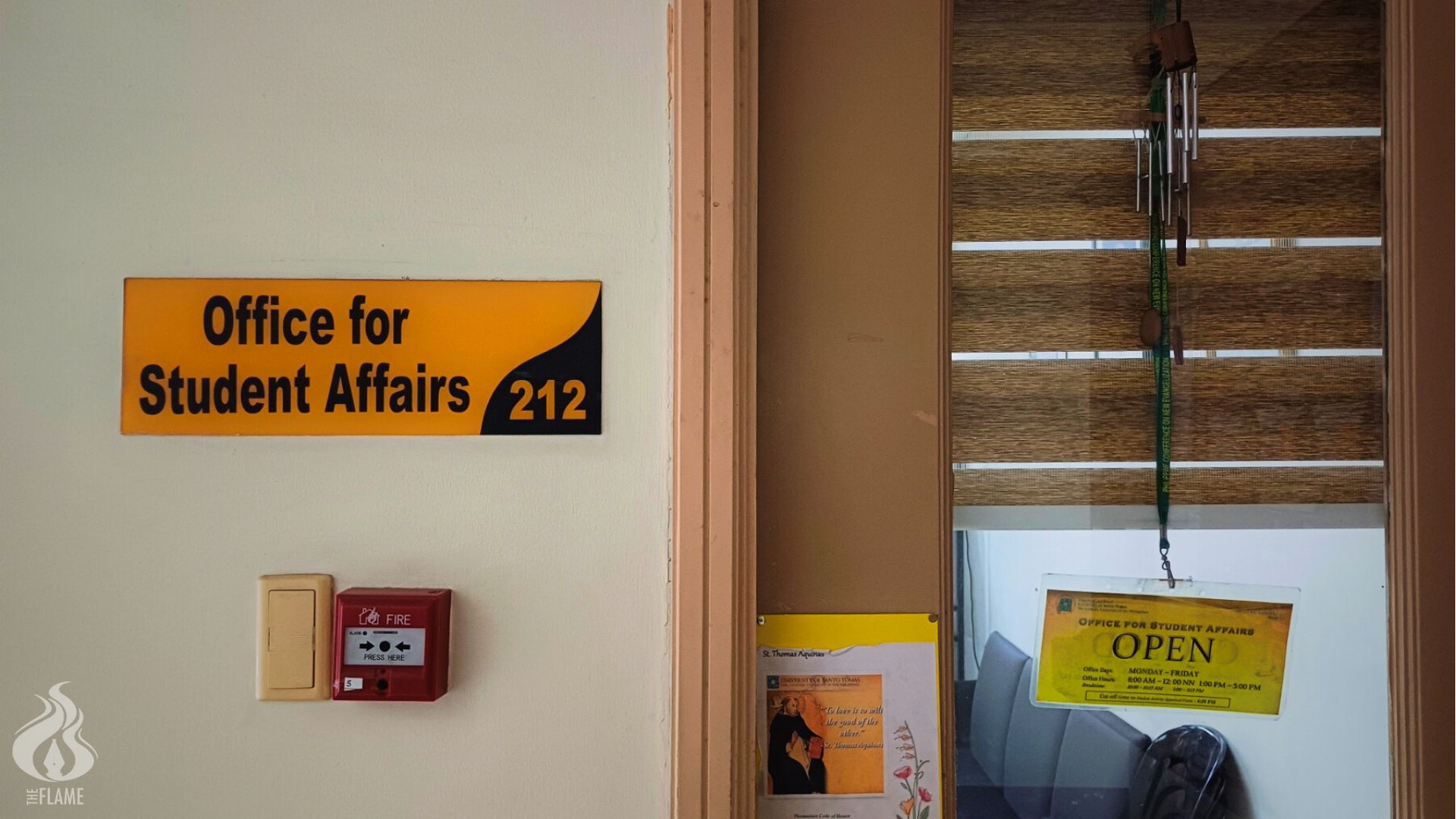
JOINING ORGANIZATIONS not recognized by UST is “not an issue” so long as the groups do not claim to be affiliated with UST, the officer-in-charge for the Office for Student Affairs (OSA) said.
OSA officer-in-charge Asst. Prof. Jaezamie Ong said students would only be “regulated” if they join unofficial groups that have ‘UST’ in their names.
“It is not an issue, whatever that organization is, it is not an issue because it is not recognized by UST unless (the group) is promoting, say, violence…but that does not mean that we will regulate you. Of course, we trust that the student knows the groups they are joining, but at least sanction-wise, there is none,” Ong told The Flame when asked if students could join groups outside of the campus.
OSA, tasked to supervise accredited student organizations and councils in the University, has been embroiled in a controversy after it pressured TomasinoWeb to take down its 7-Eleven photo showing two information and computing sciences students in their type B uniform.
The office has also drawn flak for issuing a show-cause notice to Panday Sining chairman Raven Kristine Racelis over her affiliation with “non-recognized” organizations.
Some have criticized the office for supposedly implementing a “repressive” system.
Students are prohibited from joining organizations not recognized by UST under the code of conduct of the 2018 student handbook.
“The students shall join or form only student organizations whose objectives uphold the vision and mission of the University. Students shall join only organizations duly recognized by the University,” a provision of the handbook read.
“Only duly recognized student organizations may organize and/or engage in any approved group activity. The organization should follow the University’s policies on Approval of Student Activities,” it added.
Ong admitted that the definitions stated in the handbook could raise problems.
“Technically, the definition of ‘not recognized’ in the University [covers] those student [organizations whose] activities…are sanctioned by the University,” she said.
“Anything that will happen to you is the responsibility of the school. That’s the way it is if the organization claims to be from UST. If something happens to them, will UST be responsible for them even if they are recognized?”
Ong noted that if ‘UST’ is not in the name of the organization, the University would no longer be responsible for its actions.
“We only regulate those who use the name of the University,” the OSA officer-in-charge added.
Some have also assailed OSA for its supposedly “bureaucratic system” but Ong explained that the office is just being careful in monitoring the activities of recognized student organizations.
“It all boils down to who will be responsible for that. It all boils down to who will be responsible if anything happens. We only regulate those who use the name of the University because we don’t want to give the impression that (the organization) or the activity is sanctioned by the University.” F




[…] RELATED: OSA officer-in-charge says no issue with students joining non-recognized orgs but… […]